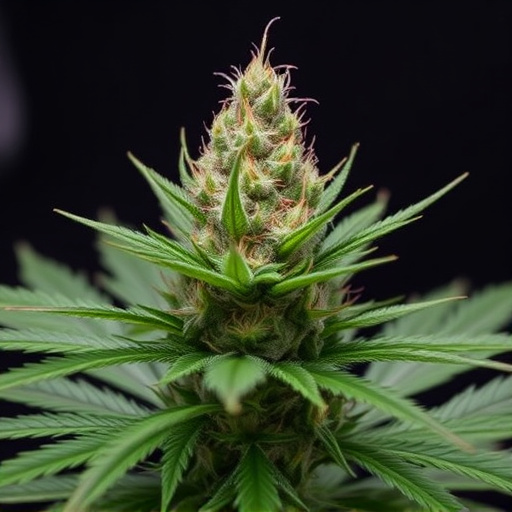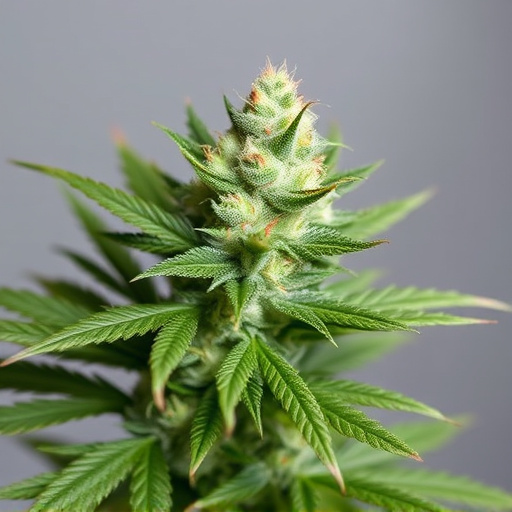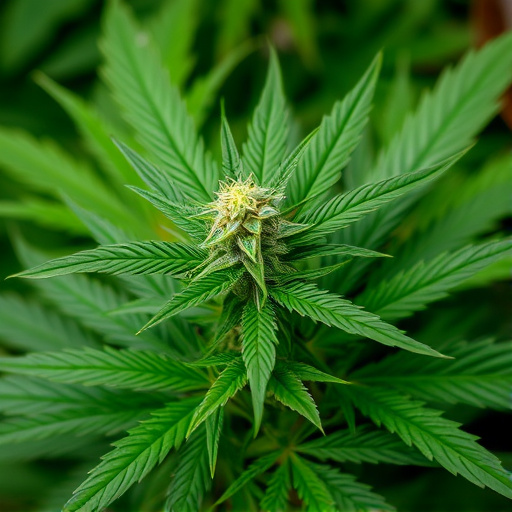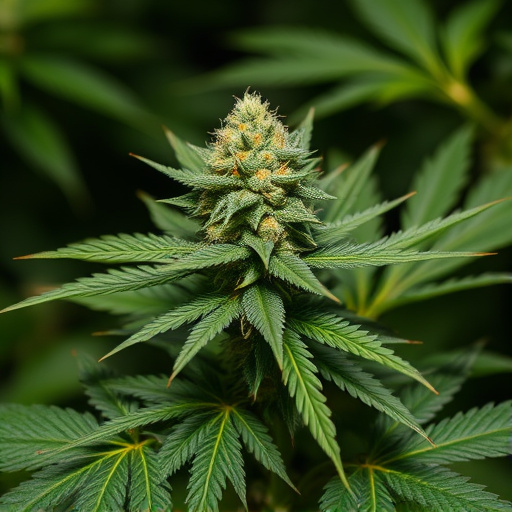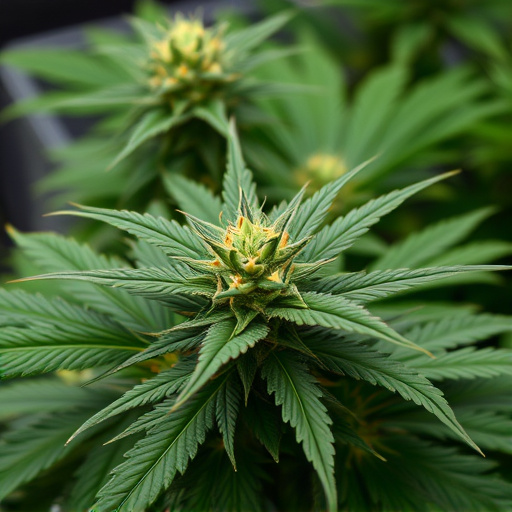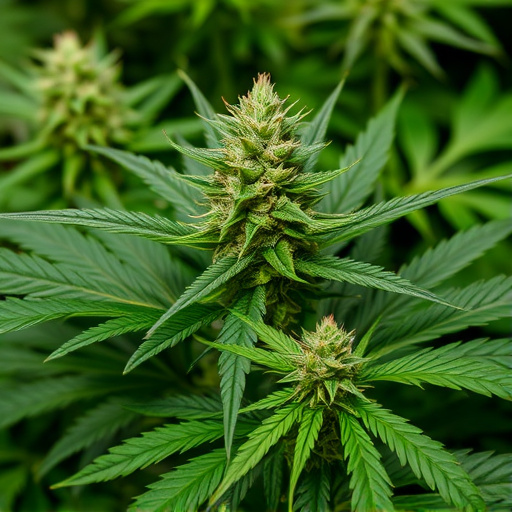TL;DR:
Every person's reaction to medical marijuana strains varies greatly due to their unique genetic makeup, which influences factors like tolerance, side effect susceptibility and therapeutic benefits. Key players include variations in endocannabinoid system (ECS) genes, particularly CB1 receptors, that affect cannabis' psychoactivity, anti-anxiety properties, and pain relief. Understanding these genetic influences is crucial for personalizing medical marijuana treatments, aiming to maximize benefits while minimizing adverse reactions. Tailoring strains to specific conditions and patient needs ensures effective, personalized treatment options for all users.
“Why does weed affect people so uniquely? The experience of cannabis can vary wildly from one individual to another, a phenomenon attributed to a complex interplay of genetic and environmental factors. Genetic makeup, specifically variations in CB1 receptors, plays a pivotal role in determining sensitivity to THC. Environmental cues, such as setting and social context, along with personal lifestyle choices, further contribute to these differences. Moreover, the diverse profiles of medical marijuana strains, rich in cannabinoids and terpenes, offer tailored relief for various conditions, highlighting the need to consider individual preferences.”
- Genetic Factors and Individual Differences
- – Genetic makeup influences how the body processes THC
- – Variations in CB1 receptors lead to differing sensitivities
Genetic Factors and Individual Differences
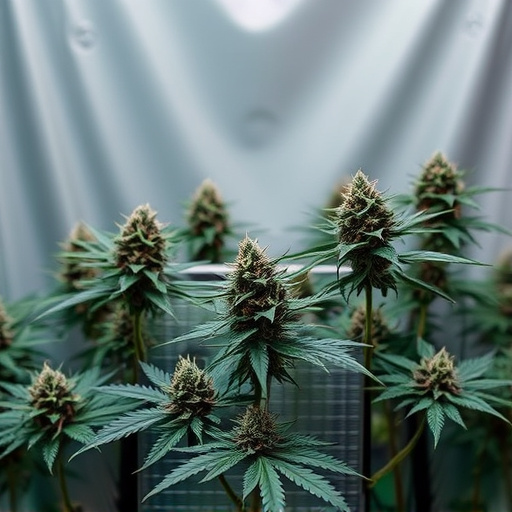
Every individual’s genetic makeup plays a significant role in how they perceive and react to cannabis, or weed. This means that two people can smoke the same strain of medical marijuana and experience vastly different effects. The reason for this lies in variations within our genes, particularly those involved in the endocannabinoid system (ECS), which is responsible for regulating mood, memory, appetite, and pain perception.
These genetic factors contribute to individual differences in cannabis tolerance, susceptibility to side effects, and even the specific therapeutic benefits experienced. For instance, some people may have a higher density of CB1 receptors in their brain, leading to more pronounced psychoactivity from cannabis. Others might possess variants that enhance the production or activity of endocannabinoids, resulting in stronger anti-anxiety or pain-relieving effects. Understanding these genetic influences is crucial for tailoring medical marijuana treatments to individual needs and ensuring optimal therapeutic outcomes with minimal adverse reactions.
– Genetic makeup influences how the body processes THC
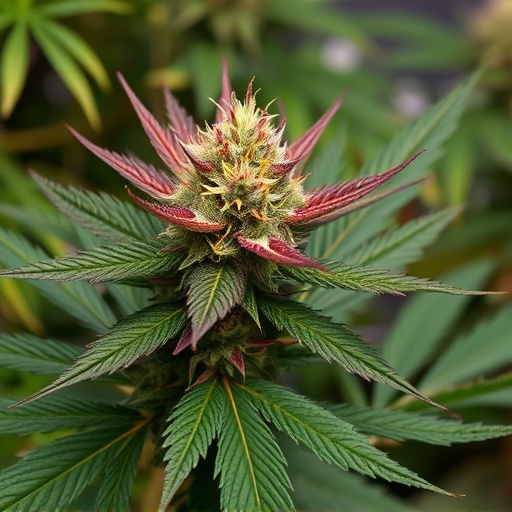
Each individual’s unique genetic makeup plays a significant role in how their body reacts to THC, the primary psychoactive compound found in cannabis. This means that two people can consume the same strain of medical marijuana and experience vastly different effects. Some may feel a calming sense of relaxation, while others might exhibit increased energy or even heightened anxiety. The reason behind this variation lies in our genes, specifically those involved in metabolizing THC.
Variations in enzymes responsible for breaking down THC can lead to differences in its blood concentration. For example, some individuals have a higher number of CB1 receptors in certain brain regions, which are the sites of action for THC, resulting in enhanced sensitivity. These genetic factors contribute to the diverse range of experiences associated with cannabis consumption, underscoring the importance of personalized approaches when using medical marijuana strains.
– Variations in CB1 receptors lead to differing sensitivities
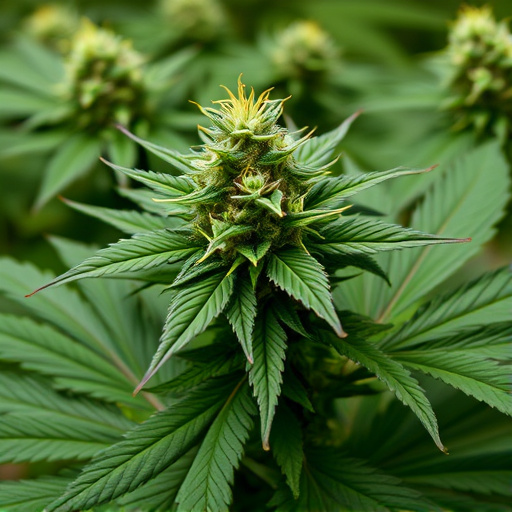
The effects of cannabis, or weed, on individuals can vary greatly due to a complex interplay of factors, with one key player being CB1 receptors in the brain. These receptors are like tiny door locks that regulate the binding of cannabinoids, the active compounds in medical marijuana strains. Variations in these CB1 receptors mean that people can have vastly different sensitivities to cannabis, leading to unique experiences.
Research suggests that genetic differences in the CB1 receptor gene can influence how an individual responds to cannabis. Some people may have higher or lower densities of CB1 receptors, affecting the potency and duration of their high. This is why medical marijuana strains are often tailored to specific conditions and patient needs; understanding these variations ensures more effective and personalized treatment options for everyone from novice users to those relying on cannabis for medical purposes.
The varying effects of cannabis, or “weed,” on individuals can be attributed to a complex interplay of genetic factors and individual differences. Each person’s unique genetic makeup influences how their body metabolizes THC, the primary psychoactive compound in cannabis. Additionally, variations in CB1 receptors, which are responsible for mediating the drug’s effects, contribute to differing sensitivities. Understanding these genetic elements is crucial for tailoring medical marijuana strains to specific patient needs, ensuring optimal therapeutic outcomes without adverse reactions.

